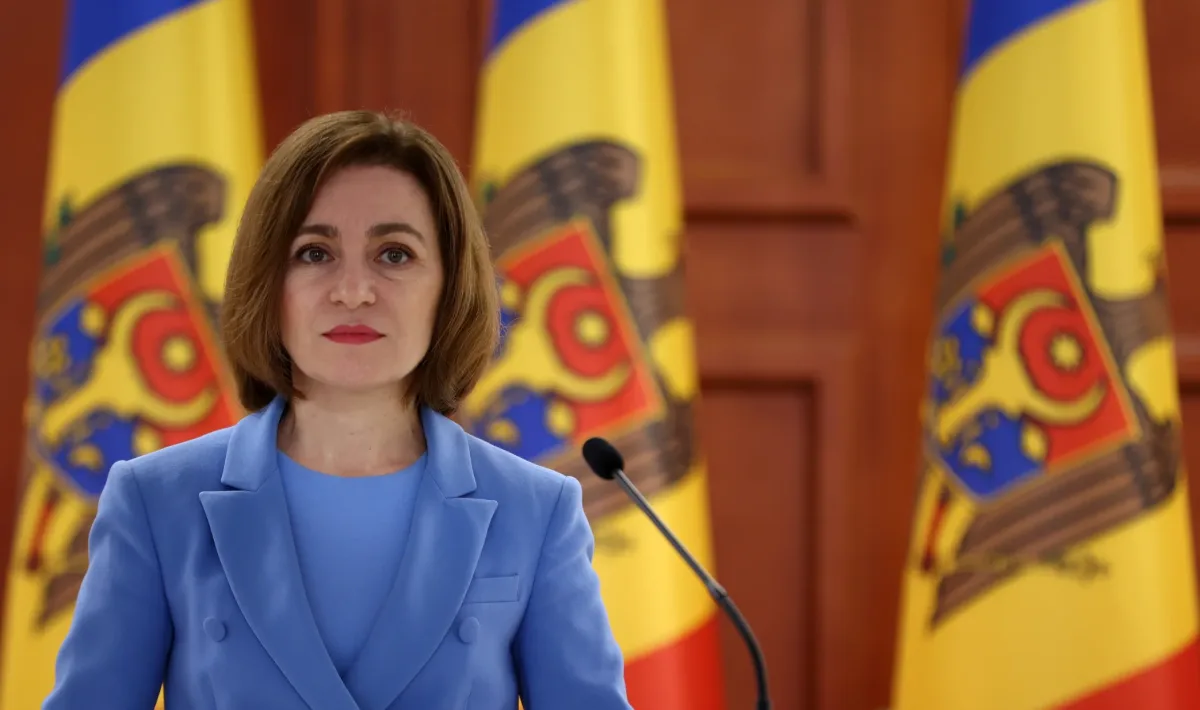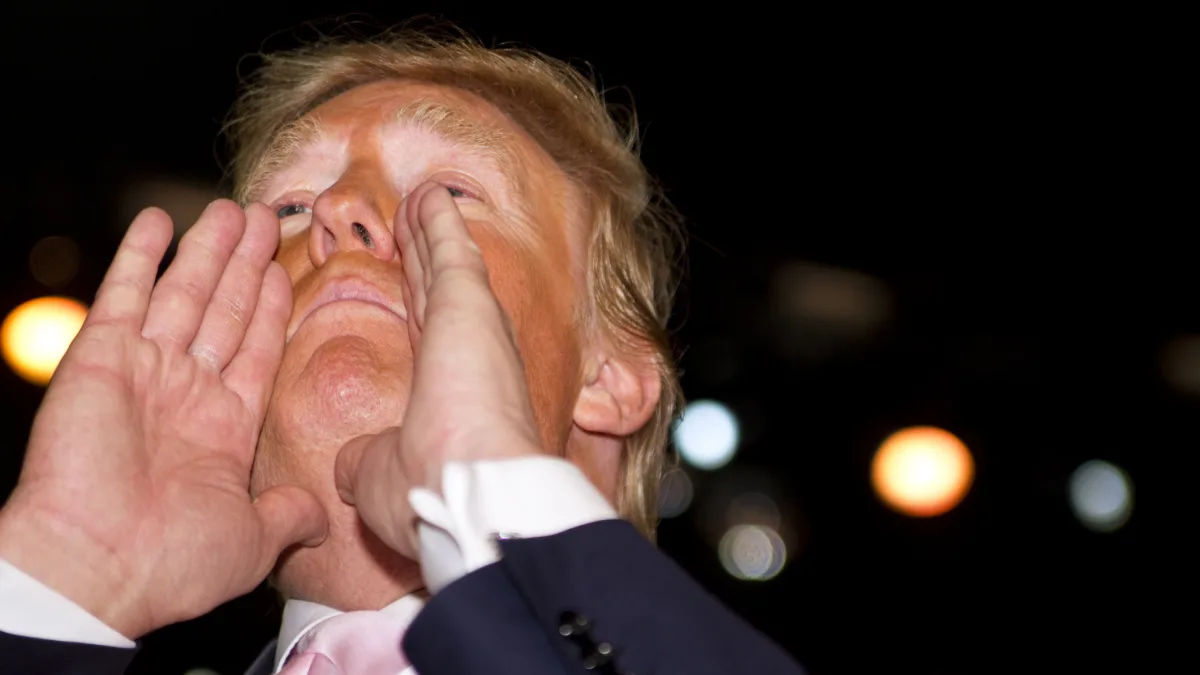Against considerable odds and an avalanche of Russian cash, Moldova has delivered a verdict that reverberates far beyond its borders. With nearly all votes counted, President Maia Sandu’s Party of Action and Solidarity (PAS) secured more than 50 per cent of the vote in yesterday’s parliamentary election, comfortably ahead of the pro-Russian Patriotic Bloc’s 24 per cent.
The result ensures PAS retains its majority in Moldova’s 101-seat legislature and, more significantly, represents a stinging defeat for the Kremlin’s most sophisticated attempt yet to capture a European democracy through the ballot box.
Wedged between Ukraine and Romania, Moldova functions as a landlocked buffer between Russia’s war and the borders of the EU and NATO. A pro-Russian victory would have threatened Ukraine’s western flank, complicated Romania’s security, and handed Vladimir Putin a critical foothold for hybrid attacks on the European Union itself.
Instead, the election delivers something increasingly rare in European politics: an unambiguous triumph for democratic resilience over authoritarian subversion.
The price of democracy
The Kremlin’s investment in undermining this election was staggering. Sandu warned before the vote that Russia had spent “hundreds of millions of euros” attempting to buy votes, spread disinformation, and recruit provocateurs. In the 2024 presidential election alone, authorities discovered that tens of millions of US dollars had been transferred to over 138,000 Moldovans—approximately 10 per cent of the active electorate—through the Russian bank Promsvyazbank.
The scale of this corruption scheme dwarfed anything seen in recent European elections.
Russia’s arsenal extended well beyond vote-buying. Election day brought cyberattacks on electoral infrastructure, fake bomb threats at polling stations across Belgium, Italy, Romania, Spain, and the United States, and organised illegal transportation of voters.
Before the vote, authorities dismantled a network linked to Russia’s military intelligence service, the GRU, which had trained over 100 Moldovans in Serbia to employ violent tactics. The Kremlin deployed its full repertoire of hybrid warfare—and lost.
Sandu’s steel beneath the surface
The victory belongs, above all, to Maia Sandu herself. At 53, Moldova’s first female president cuts an unlikely figure for Europe’s front-line defender against Russian aggression. A Harvard-educated former World Bank official, she won the presidency by a landslide in 2020 and her party swept to power the next year. Her calm demeanour and diminutive stature belie a steeliness that has repeatedly outmanoeuvred far more flamboyant adversaries.
Described by observers as possessing “an extraordinarily strong moral compass and sense of purpose”, Sandu’s approach combines technocratic competence with political courage. During the campaign, she did not simply complain about Russian interference—she acted.
Days before the vote, police carried out hundreds of raids, detaining scores of people allegedly planning to cause “mass riots” and destabilise the country. The Central Election Commission barred two opposition parties for taking undeclared foreign funds and violating campaign rules. Critics decried overreach; pragmatists noted that democracies facing existential threats cannot afford excessive timidity.
The results vindicate her strategy. Sandu and her party have now twice won elections by commanding margins, despite widespread Russian meddling. This consistency matters. It suggests Moldova’s democratic institutions, however fragile, possess genuine public support that cannot simply be purchased with Kremlin roubles.
Ukraine’s stake
For Ukraine, the outcome provides crucial breathing space. Moldova shares a lengthy border with Ukraine, and a hostile government in Chișinău could have forced Kyiv to divert precious military resources westward to counter mounting Russian threats.
Transnistria, Moldova’s Russian-backed breakaway region, currently hosts around 1,500 Russian troops along with large supplies of Soviet-era military equipment. Russian reinforcement of this garrison—likely under a pro-Moscow Moldovan government—would directly threaten Odesa, Ukraine’s maritime lifeline.
Moldova’s independence ultimately relies on Ukraine’s ability to withstand Russia’s kinetic aggression, whilst Ukraine’s chances of victory and post-war stability increase with the assurance of a resilient partner in Moldova. The two countries’ fates remain intertwined. Yesterday’s result strengthens both.
Romania and Europe’s eastern anchor
Romania, too, has a vital interest in Moldovan stability. The two countries share linguistic and cultural bonds, and Moldova absorbed over 1.5 million Ukrainian refugees during the war’s early months. A pro-Russian Moldova would leave Romania dangerously exposed, creating a hostile territory where Romania expects a friendly neighbour advancing towards EU membership.
For the European Union more broadly, the election demonstrates that enlargement remains its most potent geopolitical weapon. Moldova secured EU candidate status in 2023, with accession negotiations formally opened in 2024. The government has spent recent years deepening interconnections with Romania, integrating into the European power grid, and diversifying energy sources to reduce dependency on Russia. These tangible benefits of European alignment proved more persuasive than Russian propaganda.
As Sandu recently told the European Parliament, “If our democracy cannot be protected, then no democracy in Europe is safe.” Her point extends beyond mere rhetoric. Moldova has become a testing ground for techniques Russia will deploy elsewhere. Its success in repelling interference offers a template for other vulnerable democracies.
The diaspora decides
As in last year’s presidential election, Moldova’s substantial diaspora proved decisive. With over 240,000 people voting abroad, PAS captured approximately 78 per cent of migrant votes compared with just over 44 per cent domestically. This pattern reveals Moldova’s generational and geographical divide.
Those who have experienced life in the EU overwhelmingly support European integration; those who remain, particularly in rural areas, prove more susceptible to Russian messaging about traditional values and economic security.
The EU committed approximately 300 million euros to Moldova in 2025 alone, equivalent to roughly 1.8 per cent of the country’s GDP. For voters, the choice increasingly presents itself not as abstract geopolitics but as concrete economics: which alignment delivers better wages, pensions, and opportunities?
Beyond the ballot
Igor Dodon, head of the Patriotic Bloc and Sandu’s predecessor as president, has called for protests outside parliament. The battle for Moldova’s future continues beyond election day. Yet something fundamental has shifted. As one analyst observed, “Moldova has demonstrated that Russia can be defeated against all odds and even in a hugely asymmetric fight.”
Moldova remains poor, its institutions fragile, and its path to EU membership lengthy. PAS completed only around 56 per cent of its 2021 promises during its four years in government. Economic frustrations persist, and voters expressed disappointment with the pace of reform and spiralling gas prices since weaning itself of Russian supplies.
Sandu’s second term will demand delivering tangible improvements, not merely resisting Russian subversion.
But for now, Moldova has earned the right to celebrate. In an era when democratic setbacks often dominate headlines, here is a small country that refused to be bought, intimidated, or deceived. Sandu embodies what Harvard’s dean described as “principled and effective public leadership”—qualities in desperately short supply amongst Europe’s political class.
Her quiet competence and unyielding integrity have secured not merely an election victory, but a vindication of the proposition that democracy, properly defended, can withstand even the most aggressive authoritarian assault.
For Ukraine, Romania, and the whole of Europe’s embattled eastern frontier, Moldova’s message could not be clearer: resistance is possible, and victory achievable.
Sometimes, as Sandu has demonstrated, the most formidable strength comes wrapped in the most unassuming package.
Photo: Dreamstime.







